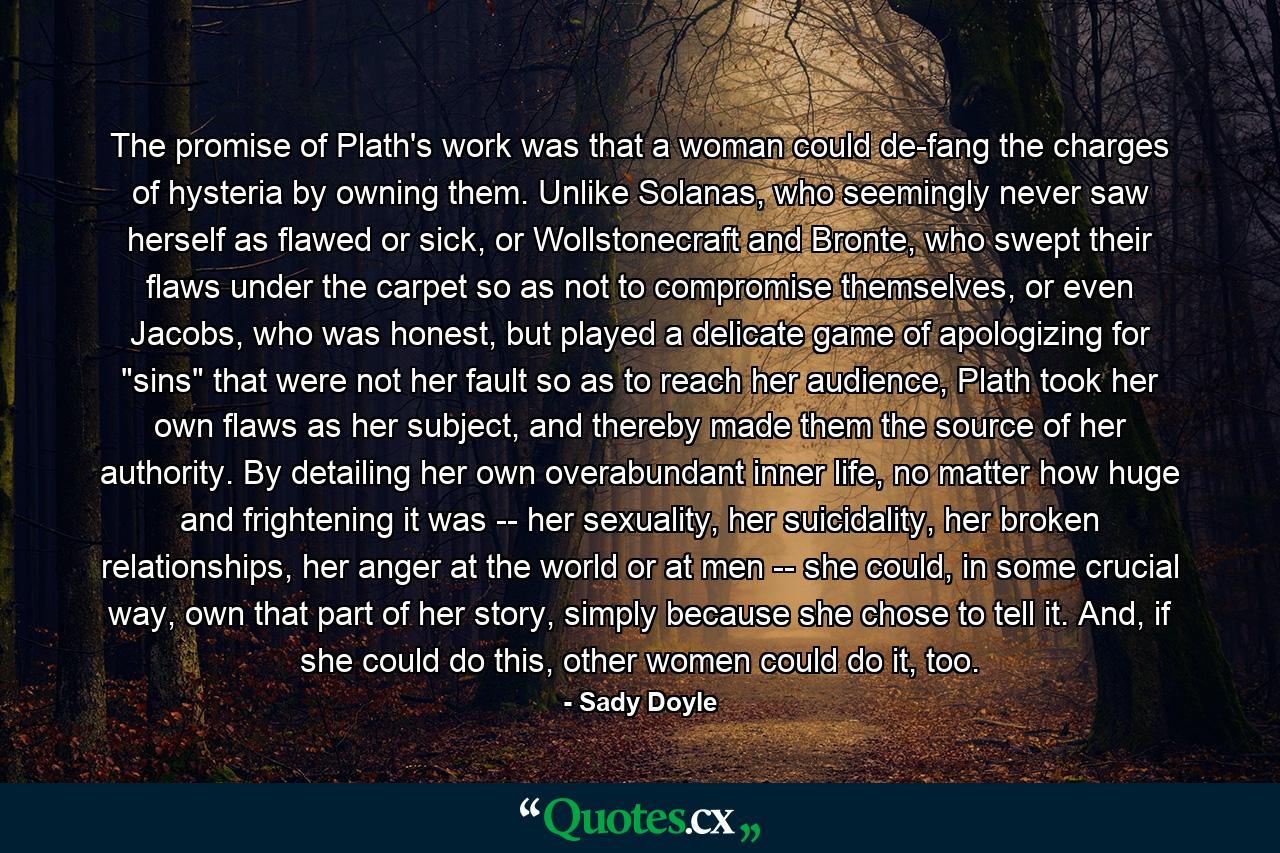The promise of Plath’s work was that a woman could de-fang the charges of hysteria by owning them. Unlike Solanas, who seemingly never saw herself as flawed or sick, or Wollstonecraft and Bronte, who swept their flaws under the carpet so as not to compromise themselves, or even Jacobs, who was honest, but played a delicate game of apologizing for “sins” that were not her fault so as to reach her audience, Plath took her own flaws as her subject, and thereby made them the source of her authority. By detailing her own overabundant inner life, no matter how huge and frightening it was — her sexuality, her suicidality, her broken relationships, her anger at the world or at men — she could, in some crucial way, own that part of her story, simply because she chose to tell it. And, if she could do this, other women could do it, too.
